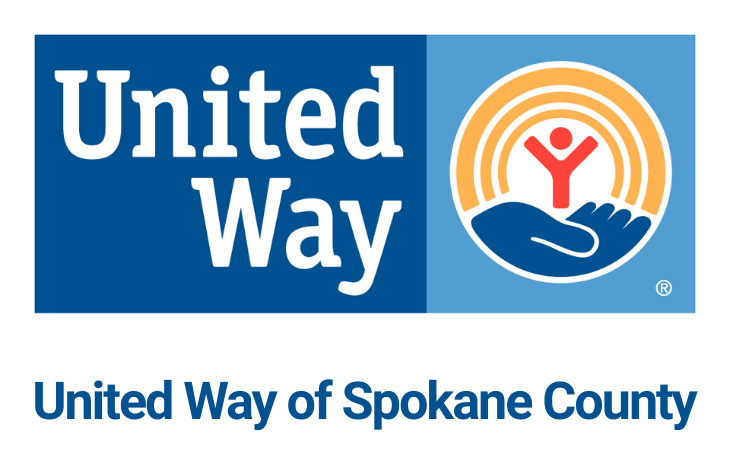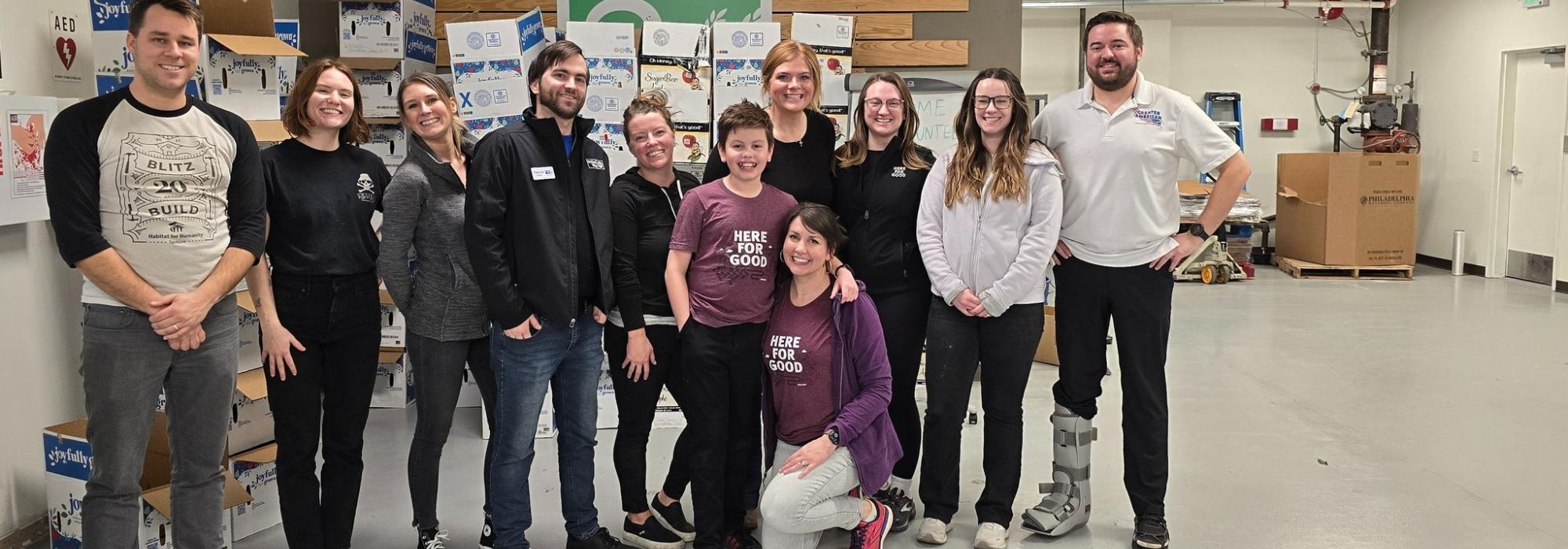
What is Imagination Library?
The Imagination Library is a free book gifting program created by Dolly Parton to inspire a love of reading in young children. Children enrolled in the program receive a high-quality, age-appropriate book mailed directly to their home every month from birth until their fifth birthday. The program is designed to build early literacy skills and strengthen the bond between children and their caregivers through shared reading. By providing consistent access to books, the Imagination Library helps children enter kindergarten ready to learn and supports long-term academic success. Today, it serves millions of children across the world, helping to close the opportunity gap for families regardless of income or background.

.jpg)
A Heartbreaking Update: The Future of DPIL in Spokane County Is at Risk
It’s with heavy hearts that we share this devastating news:
As of today, we are no longer accepting new enrollments for Dolly Parton’s Imagination Library in Spokane County.
This decision did not come lightly.
Due to Washington State’s recent choice to cut its 50% funding match, the monthly cost to run the program has doubled—from $13,000 to $26,000. Without that support, United Way of Spokane County simply cannot afford to sustain the program on our own.
Unless we receive private funding from local foundations, businesses, or corporate sponsors, this beloved program will come to a full stop.
That means children currently enrolled will no longer receive books after July.
This is a heartbreaking moment for our team, our partners, and the thousands of families who rely on these books to foster a love of reading, prepare their kids for kindergarten, and build stronger family bonds.
But we’re not giving up hope.
We believe in Spokane County. We believe in our community’s heart. And we believe there are leaders out there who will stand with us in this urgent time.
What’s at Stake:
-
Nearly 10,000 children currently enrolled
-
Over 275,000 books delivered since 2022
-
A real, lasting solution to help end generational poverty and homelessness
This program creates resilient children who are equipped to handle life’s setbacks and succeed in school and beyond. And it only continues if we work together.
How You Can Help
We need to raise $156,000 immediately to keep books going to kids already enrolled.
If your business or foundation is looking for a meaningful, local cause to support—this is it.
👉 Sponsor the program.
👉 Help us bring the books back.
For every child who holds their very first book because of you—thank you.
Become a Sponsor
Contact Us at info@unitedwayspokane.org
HOW IT WORKS
Preschool children ages birth to five who are residents of Spokane County. Regardless of family income.
Six to nine weeks after your registration form has been received, books will begin arriving at your home and will continue until your child turns five or you move out of the service area.
A child’s brain is 90% developed by the age of five.
Having access to books and reading aloud has numerous benefits to a child; it builds literacy skills, language, and brain development. The number of words that a child knows upon entering Kindergarten is a key predictor of his or her future success.
Dolly Parton’s Imagination Library promotes early childhood education and fosters parent/child interaction – both of which are fundamental ingredients for future educational success. Research has shown that children who participate in the program gain the skills that prepare them for school.
How Do I Enroll My Child?
It’s with heavy hearts that we share this devastating news:
As of today, we are no longer accepting new enrollments for Dolly Parton’s Imagination Library in Spokane County.
This decision did not come lightly.
Due to Washington State’s recent choice to cut its 50% funding match, the monthly cost to run the program has doubled—from $13,000 to $26,000. Without that support, United Way of Spokane County simply cannot afford to sustain the program on our own.
Unless we receive private funding from local foundations, businesses, or corporate sponsors, this beloved program will come to a full stop.
That means children currently enrolled will no longer receive books after July.
This is a heartbreaking moment for our team, our partners, and the thousands of families who rely on these books to foster a love of reading, prepare their kids for kindergarten, and build stronger family bonds.
But we’re not giving up hope.
We believe in Spokane County. We believe in our community’s heart. And we believe there are leaders out there who will stand with us in this urgent time.
SPONSOR A CHILD!
Interested in supporting Dolly Parton's Imagination Library in Spokane County? A gift of only $30 sponsors
a child for a year in the program. ($150 for five years).
.png)
 LAYING THE FOUNDATION
LAYING THE FOUNDATION
-
Early literacy lays the foundation for a child's future success in school and beyond, shaping their ability to learn, communicate, and think critically. Children who develop strong reading skills early are more likely to graduate high school, pursue higher education, and secure stable employment. On a broader level, communities with higher literacy rates experience lower crime, greater economic growth, and stronger civic engagement. Investing in early literacy also reduces long-term social costs tied to unemployment, poverty, and public assistance. When we prioritize early literacy, we create healthier, more resilient communities and open the door to opportunity for generations to come.
Systemic Change Starts at Birth
Early Literacy = Long-Term Success
Quality early education improves reading skills and increases graduation rates, especially when combined with executive function training.
Resilience Through Education
Stable, high-quality early learning environments help children facing homelessness or frequent moves succeed academically.
Proven Programs Like Head Start
Participation in Head Start is linked to reduced high school dropout rates and improved long-term economic outcomes.
Trauma-Informed Approaches Matter
Schools that integrate mental health support and foster secure relationships help students overcome adversity and stay on track.
Breaking the Cycle of Poverty & Homelessness
Education Supports Economic Mobility
Educational programs for homeless families can break cycles of poverty by supporting both children and caregivers.
Parent Engagement Builds Resilience
Caregiver education strengthens parent-child relationships, which are key to long-term stability and success.
Community Transformation Works
The Harlem Children’s Zone shows that combining early education with wraparound services can uplift entire neighborhoods.
Literacy is a Multi-Generational Tool
Providing parents with reading resources helps create lasting change across generations.
Reduction in Crime Rates
Early Education Reduces Future Crime
Strong early learning foundations are linked to lower rates of criminal behavior later in life.
Better Decision-Making Starts Early
Early education promotes empathy, critical thinking, and responsible choices.
Targeted Programs Work
Programs for at-risk youth reduce delinquency by teaching conflict resolution and self-regulation skills.
Building Relationships & Social Adaptability
Early Relationships Build Life Skills
Early education supports communication, collaboration, and conflict resolution—key for long-term personal and professional success.
Resilience Starts in Childhood
Programs that build executive function and self-regulation help children develop emotional intelligence and stress management skills.
Emotional Intelligence Prevents Conflict
Teaching empathy and self-regulation early reduces future risks of domestic and workplace conflict.
Proven Programs Like Conscious Discipline
These approaches promote empathy and harmony by nurturing strong emotional and interpersonal foundations.
Effects of Early Learning on Society
Educational Attainment
Early learning boosts graduation rates and higher education, leading to better job opportunities and income.
Intergenerational Benefits
Involved parents create a culture of learning at home, reinforcing educational success.
Cognitive Skill Development
Builds strong foundations in reading, math, and critical thinking, setting the stage for academic achievement.
Advancing Equity
High-quality programs help level the playing field for children from disadvantaged backgrounds.
Stronger Workforce
Better-educated individuals are more productive and adaptable to technological change.
Economic Growth
A skilled workforce drives innovation and contributes to a stronger economy.
Social-Emotional Skills
Children learn to communicate, collaborate, and resolve conflicts—skills crucial for work and relationships.
Reduced Social Costs
Early education decreases the likelihood of special education, teen pregnancy, and involvement in crime.
Increased Productivity
A well-educated workforce performs complex tasks more efficiently and supports economic advancement.
Improved Health Outcomes
Early learning tied to health education supports lifelong well-being and reduces healthcare costs.
Lifelong Learning
Encourages curiosity and a love of learning, supporting personal growth across the lifespan.




